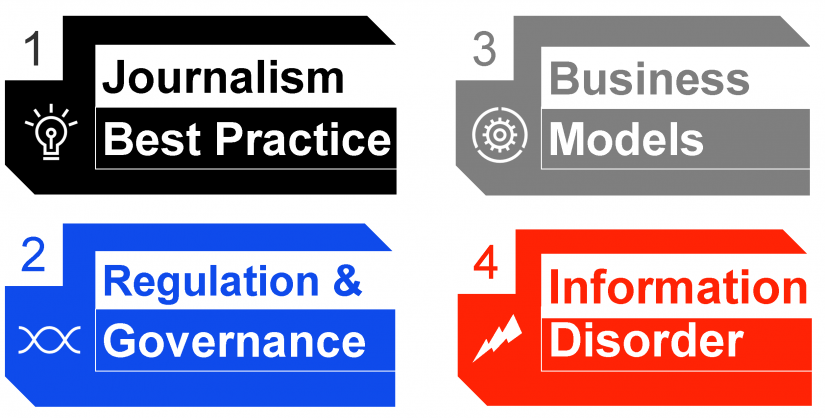Our pillars
We’ve developed four pillars that drive the work of the Centre.

Our four themes reflect concerns that run across the disciplines of law, journalism and communication, with technology as a key contributor underpinning all our programs and projects.

Our first program covers a range of topics that affect journalists and publishers and the profession of journalism, including journalism education. It also addresses journalism’s contribution to informed public debate within democratic society, and how it interacts with audiences and citizens.
Some of the topics we explore:
-
Journalism in the new economy/the future of work.
-
Building trust in a disaggregated and distributed media landscape.
-
Role of media literacy in building trust.
-
Audiences and users as content producers.
-
Factual content and fake news.
-
Ethics in transition: standards, complaints and regulation.
-
Automated and algorithmic news.
-
Role of investigative journalism and public service media.

Our second program draws on our expertise in law and regulation and links with the ethical obligations of journalists and with journalists’ concerns for media freedom.
Some of the topics we explore:
-
Redesigning communications legislation for a converged environment.
-
Charting and protecting media freedoms.
-
Reconciling media freedoms and responsibilities.
-
‘Fair use’ of journalists’, publishers’ and users’ content.

Our third program connects journalism and law with the business of media. We believe that the challenges facing the media today are unlikely to be solved by specialists working in one domain. We draw of the inter-disciplinary environment at UTS to work with our colleagues in the Business School to explore topics such as:
-
Business models and income streams: beyond advertising and paywalls.
-
Investing in localism.
-
Experiences of other disrupted industries.
-
Adapting regulation for effective competition.

